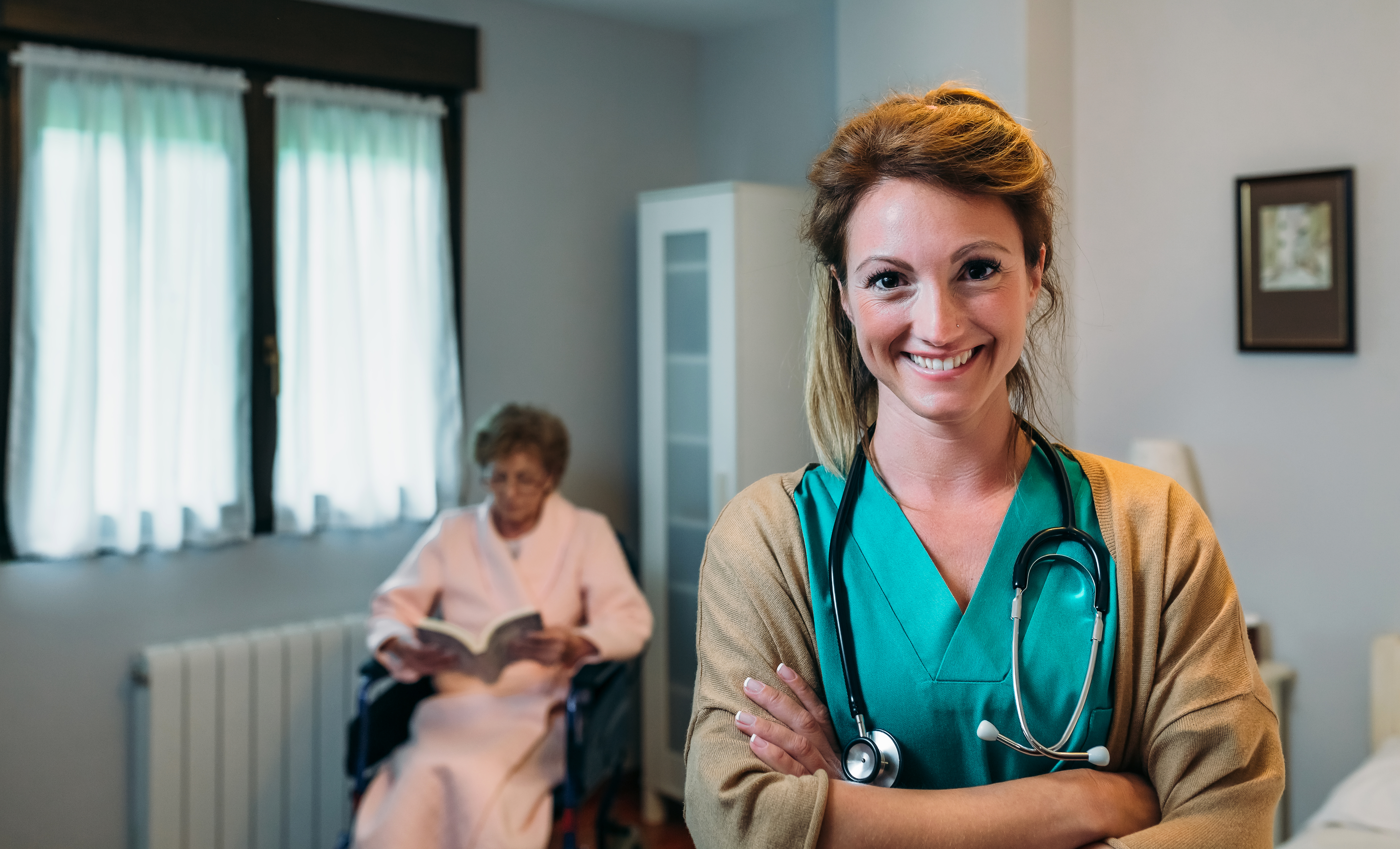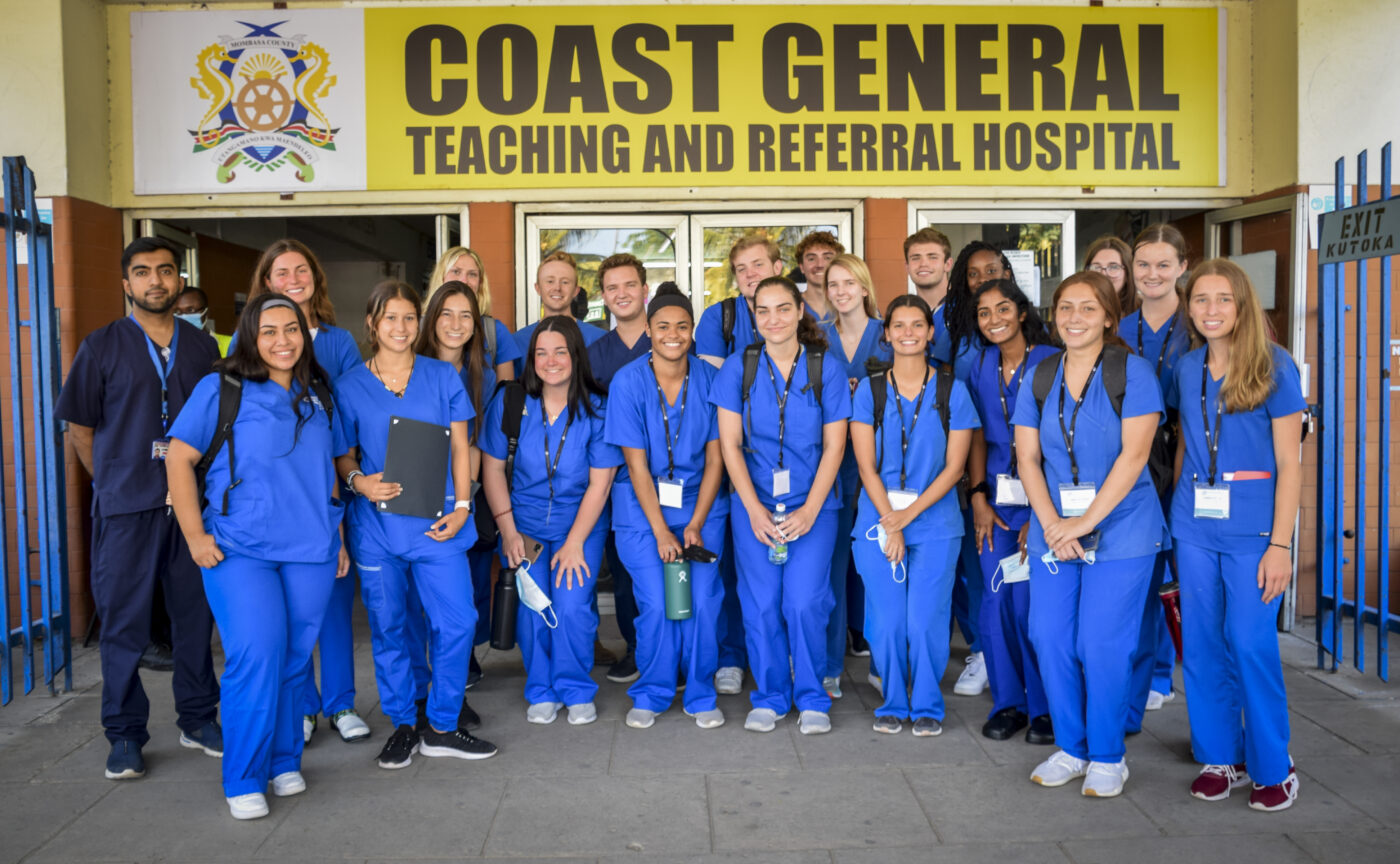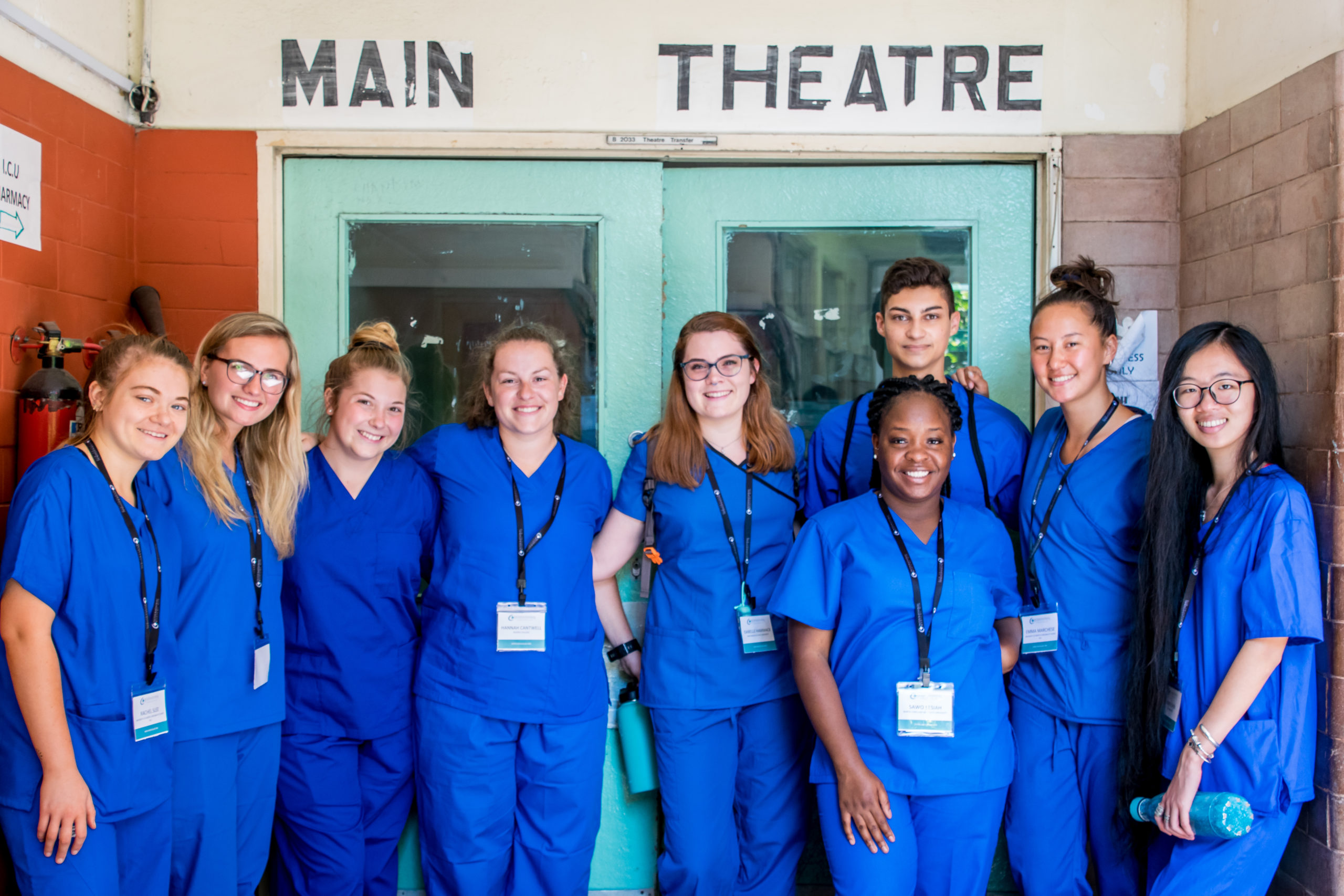Introduction
Do you have questions regarding how many clinical hours for med school are needed to get in? You’re not alone. So many pre-med students want to know how to prepare themselves to hopefully get accepted into medical school. And clinical hours are a huge part of that.
The problem is that there are no clear criteria for what’s expected. So, for something so important, why can’t you just google it? Because every medical school is different and has its own set expectations. What they want to see in their applicants could be totally different from another school.
And this is good because, if every school had the same requirements, it would be tough to get into any medical school if your application isn’t cookie cutter. The best way to get into medical school is by applying to schools where their requirements match your strengths.
So, your best bet is to look up each school you want to attend and work to meet their requirements as you prepare for medical school. That’s right; just wanting to attend medical school is pretty cool. But preparing for med school with specific schools in mind is the way to go!
Now, did we lure you into this blog just to tell you that? Of course not! Today’s blog will cover, in detail, some essential questions surrounding clinical hours. These are questions we get asked daily that we think you deserve answers to!
For example, how many clinical hours for med school should you have, regardless of what certain schools may require? What activities count for clinical hours? Are there mandatory regulations that you must follow?
These are all great questions! And while some answers are specific to the medical school to which you’re applying, some answers are universal. We’re breaking it down into bite-size chunks to help you navigate the medical school preparation process!
How Many Clinical Hours for Med School Do I Need?
Clinical experience for med school is essential to getting into medical school. Don’t think that’s not true just because every school has different requirements! And the more experience you have, the better. So, we recommend starting early and gaining all the experience you can. While more hours will impress admissions committees, it’s more about gaining valuable experience that will help you determine if medical school is right for you and what specialty or subspecialty interests you.
This is one of those areas where the exact number of hours will depend on the school to which you’re applying. Some schools tell you how many hours you need to be a competitive applicant, while other schools require a certain number of hours before they’ll consider your application. In other words, don’t apply if you don’t have enough hours. You won’t be considered.
While we can’t give you an exact number of hours to aim for, we can provide recommendations based on the average number of hours we see required. We recommend 100 to 150 hours of clinical experience with the data we have.
Quality Clinical Experience for Med School
While you might feel anxious to complete as many hours as quickly as possible, it’s essential not to forget quality. Quality is key to ensuring that your clinical experience in med school is a success. It would hardly be a success if you racked up hours without gaining experience and learning from the process.
It’s better to gain clinical experience for med school at one or two clinics where you volunteer or work for months or even years than to bounce around from one clinic or hospital to the next. The difference? Commitment and learning vs. adding up hours to merely meet a requirement.
How to Gain 150 Hours of Clinical Experience for Med School
Do 100 to 150 hours seem like a lot? We understand if you’re in shock! But we have good news. There are multiple ways you can gain clinical experience for med school. You might imagine yourself being stuck at a blood drive for 100 hours. How would you ever rack up that many hours helping draw blood? As it turns out, that’s only one way to earn clinical experience for med school. Let’s look at what other ways exist and how they can benefit you on your road to becoming a doctor.
A hospice volunteer is an unpaid volunteer who assists doctors with their dying patients. Death takes a toll on anyone – including medical providers – so this environment will come with a heavier setting. You’ll see how doctors and other providers respond in that type of setting. You’ll be around nurses, social workers, and counselors who are there to assist the dying individual and their families. This experience can help you determine if a specialty with a high mortality rate is feasible for you.
A hospice scribe is much like an assistant. You’ll type out what’s dictated to you by various medical providers and help them keep files organized. This might not sound like the greatest way to spend your time, but it will give you experience and act as a building block for better opportunities.
A certified nursing assistant (CNA) is a paid position assisting nurses. It’s a fantastic way to earn clinical experience for med school while keeping up with classes and coursework. You can become a CNA by completing a program through your local community college.
A volunteer emergency medical technician (EMT) will give you hands-on experience with entry-level medical work. Working with local individuals in emergency settings will help you understand the types of medical needs in your community. You’ll also gain experience with different medical specialties.
A caretaker is someone who stays with a sick patient and provides them with primary care that the person is too ill to provide for themselves. Caretaking can involve helping an individual use the restroom, changing their clothes, feeding them, bathing them, etc. It can also look like reading to them, telling them stories, cooking meals for them, and so forth.
A caretaker’s role is important, especially if the family and close friends of the individual have to work and can’t provide as much care as the sick person needs. Knowing their loved one is in good hands can give great peace of mind to a loving child who can’t be there as often as they’d like.
What Counts As Clinical Experience?
You can take on multiple roles as you prepare for medical school, but it’s essential to understand what each role counts for. The last thing you want is not to meet all the requirements because you misunderstood what your job/volunteer experience counted for.
In this section, we’re carefully reviewing the types of positions that are generally available and explaining how they’ll help you get into medical school.
Administrative Experience
While administrative experience is excellent for exposing you to a healthcare environment, it does not count for clinical experience. The administrative experience involves administrative tasks, such as filing paperwork, filling out forms, organizing data, and more.
Roles with titles like medical assistant, nursing assistant, office administrator, and receptionist are generally more administrative roles. This might seem misleading since “medical” and “nursing” allude to clinical jobs, but think of it this way. They’re hiring an assistant to do what they don’t have time for – generally administrative work.
Clinical Experience vs. Shadowing
Shadowing is a passive experience in which you observe a medical provider as they treat patients. You’re watching what they do and learning from them – but you don’t gain any experience. Shadowing is a great way to determine whether a specialty or subspecialty is something you might want to pursue for your career.
Clinical experience is the opposite of shadowing. This is where you’ll get hands-on experience and exposure to patients. You’ll directly interact with patients and provide supervised care. Despite the word “clinical,” don’t be fooled into thinking that you can only gain clinical experience at a doctor’s office. Other options include a blood bank, hospice, nursing home, ER, etc.
So, which is better? Your first thought might be clinical experience, but, as it turns out, both matter. You should tailor your hours carefully to meet the requirements of the medical schools to which you’re applying.
Volunteer vs. Paid Clinical Experience
You don’t get paid for shadowing. But clinical experiences vary. Some are unpaid, while others are paid. Unpaid positions usually occur at clinics, hospitals, and similar medical settings. Those clinical settings are used to having volunteers eager to meet their clinical experience requirements. In addition to meeting your requirements, it’s also an excellent way to meet professionals in your field and build those connections.
You might not have time to volunteer if you already work and attend school full time. That could certainly be overwhelming, but the good news is that there are paid opportunities for clinical experience. You just need to know where to look. Your best bet is to see what opportunities are available through your school and word of mouth. You might also find some opportunities online.
Why Do I Need So Much Clinical Experience?
You need clinical experience for several reasons. First, you need the experience to ensure you’re in the right career field. Admissions committees don’t want to just admit any pre-med student who applies. Lack of experience can suggest that you’re applying just to apply and see if you get in. Mere interest isn’t enough for medical school applications. You need to prove that you’re in it for the long term.
Second, you’ll need strong communication skills to do well as a doctor. You’ll constantly interact with others, whether that be patients or fellow doctors, nurses, medical assistants, etc. Having sympathy, empathy, compassion, and care for your patients will be critical to your success.
Third, admissions committees want to know that you can handle high-stress situations. You’ll likely encounter and learn how to handle those situations during your clinical experience.
Finally, admissions committees want to see a robust application. Clinical experiences will not only fill that requirement, but they’ll help you write your application essays – primary and secondary.
But don’t panic if you fall short in this area. You can get creative with how you write your essays. Some of the best applicants don’t have all the experience they’d like, but they have the skills to make a strong impression with the limited experience they have. You don’t need to be perfect to get into medical school. But you do need to know how to craft a strong application anyway. Just be sure you’re honest in your application.
How to Get Clinical Experience
Don’t panic apply to every opportunity for a clinical experience that you can find. After all, experience is great, but applying for something you aren’t qualified for or interested in is a waste of your time. Your resume will either be passed over, or you’ll end up with clinical experience you hate – experiences you won’t want to discuss on your applications.
A crucial part of clinical experience is connecting with other pre-med students and healthcare professionals. At some point, you might need a letter of recommendation. You’ll want to feel confident that you can ask for that letter from a healthcare professional you enjoyed working with and whom you trust to provide you with a strong letter of recommendation.
Some of the most popular clinical experience opportunities include:
- Health Professional’s Assistant
- Certified Nursing Assistant (CNA)
- Volunteer Emergency Medical Technician (EMT)
- Medical Scribe
- Personal Caretaker
- Medical Assistant
- Hospice or Nursing Home Volunteer
- Mental Health or Addiction Center Volunteer
- Developer/Innovator
Note that some of these clinical experiences require qualifications and certifications that you might not have. If you have a serious interest in one of these areas, we recommend pursuing it. Your dedication will impress admissions committees while fulfilling requirements and proving that you’re a strong applicant.
We recommend starting with volunteer opportunities and finding more options as you go. There’s no shame in starting out filing paperwork. As you prove responsible with the work you’re given, your employer will trust you with more opportunities. Expressing an interest in clinical experience where you’ve been volunteering for a while is a great way to go. The most important step is getting your foot in the door.
Quality Over Quantity
Instead of hopping one from clinical experience to another, we recommend sticking to a select few experiences that you stick with for a long time. This shows your ability to “hold down a job” in a clinical setting. It shows how well you can work under pressure, maintain and improve your bedside manner, and handle the constant stress of working in a medical setting.
Bouncing between opportunities shows a lack in all those areas, which is a major red flag. Now, don’t panic if an experience doesn’t work out. That doesn’t mean you’re a terrible med school applicant or that you won’t get in! It’s constantly bouncing around that signals admissions committees. Sticking with one experience for a couple of months while you’re at your other experiences for a year does not show anything wrong with you as an applicant. So, take a deep breath if that’s you!
Frequently Asked Questions
How many hours of clinical experience do I need for medical school?
The answer to this question varies – it depends on which medical schools you’ll apply to. Some schools will provide guidelines as to how many hours you should earn. Other schools will provide exact requirements. We recommend at least 100 hours and up to 150 hours.
What is the difference between shadowing and clinical experience?
Shadowing is a passive experience designed to help you decide whether your interest in medicine is strong enough to pursue it as a career. You don’t interact with patients or provide any kind of medical care.
Clinical experience gives you hands-on experience where you actively participate in providing healthcare to patients. You’ll get to talk to patients, fill out their medical profiles, draw blood, prep them for procedures, and more.
Does an administrative job in a clinical setting count as clinical experience?
While this can be a valuable experience that helps determine if a healthcare setting is right for you, administrative work will not count as clinical experience.
Does research experience count toward my clinical hours?
This is a tricky one. Your research will only count if your research tasks involve completing tasks in a clinical setting. If you monitor blood pressure or draw blood, you can count it toward your clinical hours. Chatting with a patient on your way to somewhere else? That wouldn’t count.
Why are clinical hours so crucial for my medical school application?
Clinical hours help you determine if medicine is the right career field for you. It shows your commitment to the field and willingness to push through hard days. It tells admissions committees that they won’t waste time admitting you to their programs. Additionally, clinical experiences give you fodder for the dozens of essays you’ll write for your applications.
What are the different types of clinical experience?
Some clinical opportunities are volunteer-based, while others are paid. Volunteer experiences are easier to get since they generally require less experience.
How do I get clinical experience?
Start by researching all the local opportunities you’re qualified for. Pick the experiences that will most likely help you on your path to medical school. Hospitals, nursing homes, hospice settings, mental health treatment facilities, blood banks, etc., are all great ways to get started with your clinical experience.
Once you find good places to volunteer and gain those experiences, stick with them for as long as possible or until you find a better opportunity. Remember, bouncing around from one opportunity to the next doesn’t look great on your applications.
What if I have limited clinical experience?
Not everyone will have 100+ hours of clinical experience, and that’s okay if other parts of your application – like your MCAT – are stronger. Your stronger areas can push your application through to the next round if you have good reasons for having limited clinical experiences.
Sometimes, circumstances outside our control prevent us from achieving everything we’d like. Admissions committees will understand if extraneous circumstances hold you back.
International Medical Aid Can Help
Do you have questions about how many clinical hours for med school are necessary? Do you need help with your medical school applications? We get it; it’s a lot to get through. That’s where IMA comes in. We offer medical school admissions consulting to pre-med students looking to submit their best possible application.
We also offer healthcare and pre-med internships that you can count toward your clinical experience hours for medical school. You can gain experience at your local ER, or you can travel across the world to shadow doctors as they provide medical care to underserved populations. (Or you can do both!)
International Medical Aid is here to help you on your journey to medical school. Have questions? Need assistance? Don’t hesitate to contact us for help! We look forward to working with you.




